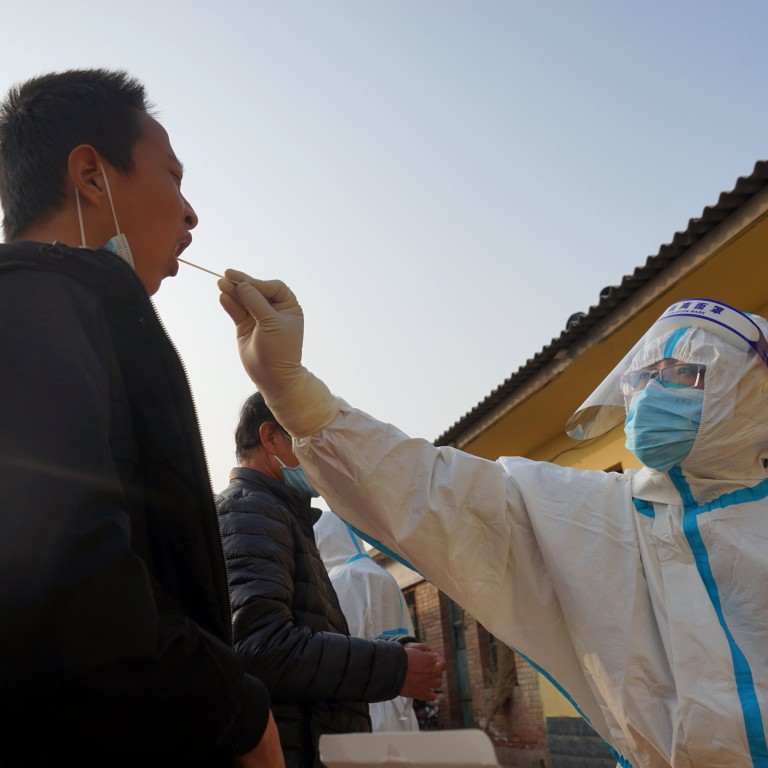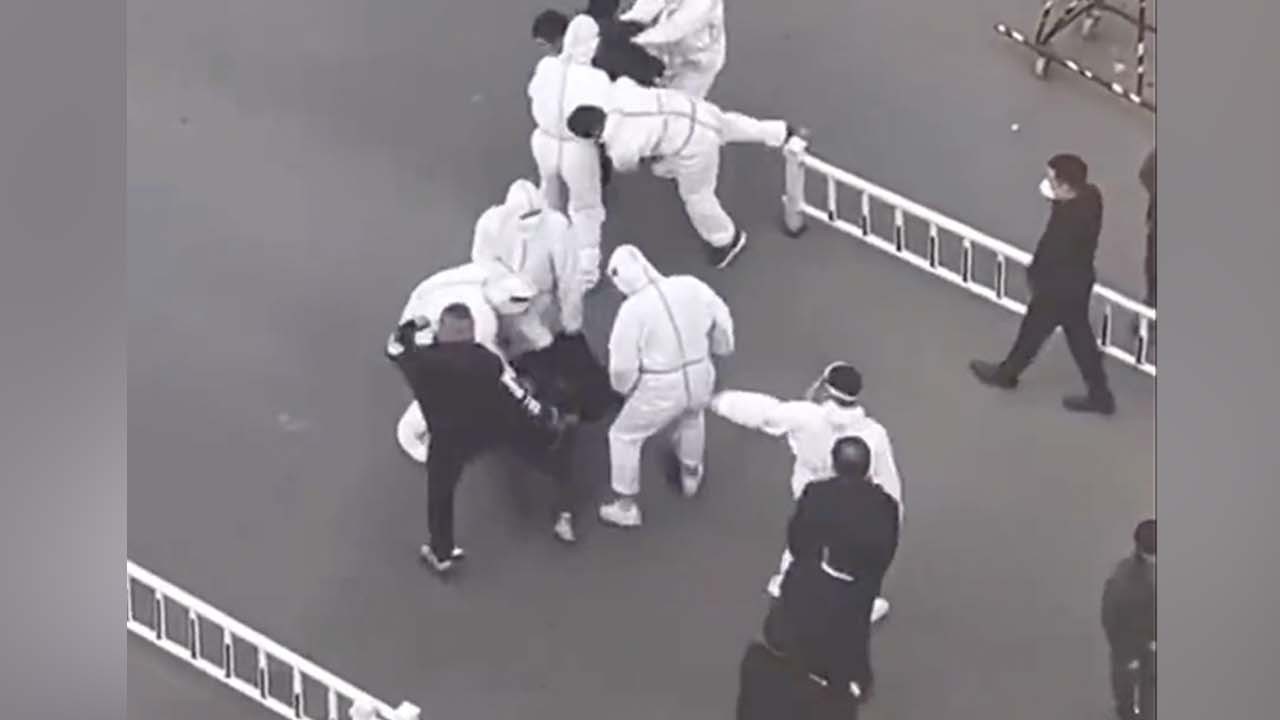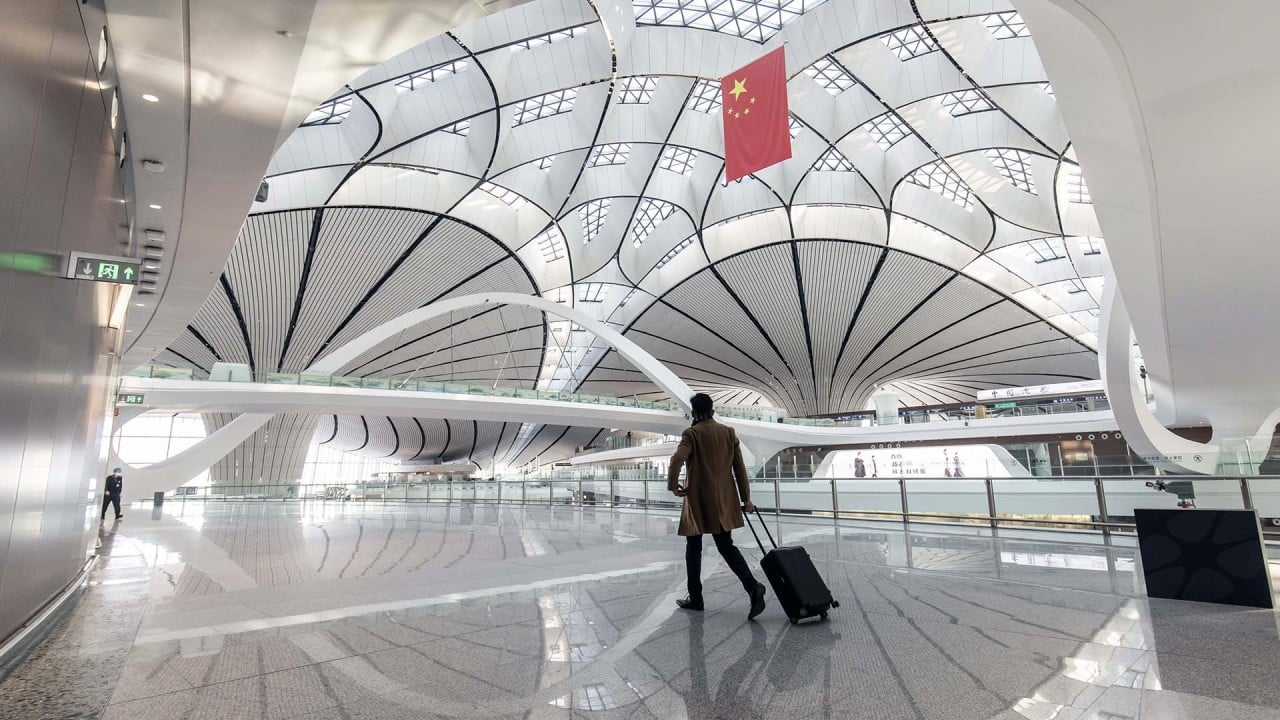
China’s changes to Covid-19 controls get mixed reaction as new cases stoke fears
- Chinese cities call off mass testing and loosen restrictions after central government adjusts pandemic measures
- However, some residents worry changes go too far as infections climb to six-month high
But when restrictions were suddenly lifted over the weekend, he did not feel overjoyed – instead he was worried after learning schools would reopen on Monday despite hundreds of new cases reported in the city.
“I’m not ready to send my children back to school just like this, and I don’t think anyone in the class is going to. I will watch for a while and only [let them] go back to school when I am sure the risk of infection is much lower,” said the 38-year-old father of a daughter in kindergarten and a son in the third grade.
China eyes ‘targeted and precise’ approach to zero-Covid as cases exceed 10,500
They are happy the new measures keep areas designated as “high risk” to a minimum by limiting restrictions to part of a residential building. But other moves, such as decreased testing, have made some uneasy as Covid-19 cases have steadily climbed this month.
The situation is really severe, and we’re anxious and helpless
On Sunday, Shijiazhuang cancelled compulsory mass testing and vowed to rectify “unscientific” measures that required residents to test two or three times per day. The city logged 544 local infections for Sunday and 440 for Monday.
“This happened so suddenly and unexpectedly. I am very happy that my building is not sealed off now, but I somehow feel that shopping malls have a higher risk of infections,” Zhang said, adding he did not expect an immediate increase in customers at his shop as people might be reluctant to go shopping.
Why China’s local officials will remain caught in zero-Covid ‘paradox’
On Monday, Beijing’s newly appointed Communist Party secretary Yin Li, a former deputy health minister, urged authorities to stick with the dynamic zero-Covid strategy and “race against the virus to quickly contain the growing momentum of the outbreak”. The capital recorded 462 local infections for Monday.
Chaoyang district, Beijing’s hardest hit area, removed testing booths from the streets, resulting in long queues as shopping malls and office buildings still requested negative PCR test results for entry. The booths reopened on Tuesday after widespread complaints.
On Monday and Tuesday, party mouthpiece People’s Daily published commentaries saying China should stick to its dynamic zero-Covid strategy and prevent imported cases and large outbreaks.
But to some residents, the controls do appear to have loosened, and they are already preparing for more drastic changes.
He has been through several lockdowns and believes they are not the solution. “It should not be sealed off. Everyone has to live,” he said. His company resumed production on Monday.
Yuxi said he hoped the public would let Shijiazhuang serve as a “trailblazer” to find a better path for pandemic prevention across China.
A Beijing woman said all six members of her friend’s family in Shijiazhuang recovered from Covid-19 within a week after showing mild symptoms such as fever and cough and would have preferred to stay at home rather than being taken away to a makeshift hospital.
While some have hailed the long-awaited changes, others worried they were a step too far, especially with case numbers climbing.
Muhan, a student at Hebei Normal University in Shijiazhuang, said she and her classmates had noticed more students showing symptoms than the official case count seemed to suggest.
She said that while some students had recovered and could resume classes, many had experienced symptoms such as fever and coughing up blood without timely treatment or adequate medical supplies.
“What are people envying? Do you think it’s a good thing to open up?” said Muhan, who declined to give her surname. “Now many universities are transferring both positive and negative students together [to quarantine sites]. The situation is really severe, and we’re anxious and helpless.”
Staff and students at universities in Shijiazhuang were temporarily evacuated while schools cleaned and disinfected their facilities, and those with negative test results were allowed to return to campuses on Monday.
Additional reporting by Guo Rui



